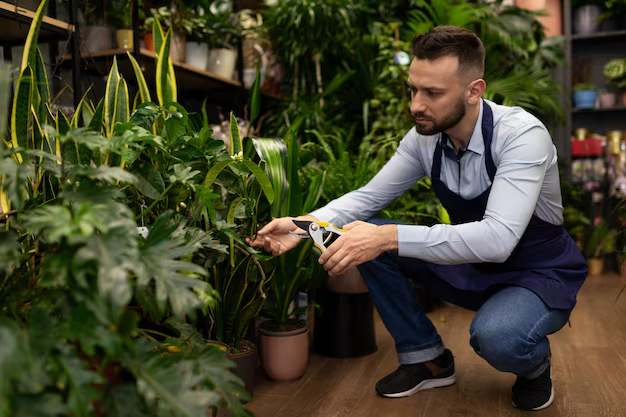Is There a Link Between Roundup and Cancer? What You Need to Know
In recent years, a debate surrounding the popular herbicide Roundup and its potential link to cancer has captured significant public attention. This discussion intensified following high-profile lawsuits and conflicting scientific studies, leaving many people questioning whether this ubiquitous weed killer poses a serious health risk. Here’s what you need to know about the claims, the science, and what it could mean for your health and safety.
What is Roundup?
Roundup is a trademarked herbicide produced by Monsanto, now owned by Bayer. Its active ingredient, glyphosate, is widely used in agriculture, gardening, and landscaping to manage weeds. Since its introduction into the market in the 1970s, Roundup has become one of the most commonly used herbicides globally, playing a pivotal role in the world’s food production systems.
Understanding Glyphosate
Glyphosate works by inhibiting a specific enzyme pathway—a crucial system responsible for plant growth—which makes it effective in eliminating unwanted vegetation. Its widespread use in genetically modified crops (specifically designed to resist glyphosate) has resulted in higher yields and more efficient weed control.
The Cancer Debate: What Science Says
Studies Linking Glyphosate to Cancer
The debate about glyphosate’s cancer risk came into the spotlight because of two critical events:
IARC Classification: In 2015, the International Agency for Research on Cancer (IARC), part of the World Health Organization, classified glyphosate as “probably carcinogenic to humans.” This classification was based on “limited evidence” in humans and “sufficient evidence” in animals.
Lawsuits: Multiple lawsuits have been filed claiming Roundup caused non-Hodgkin's lymphoma, with plaintiffs often winning significant settlements. These cases usually hinge on studies supporting the carcinogenic potential of glyphosate.
Scientific Studies Denying the Link
On the flip side, numerous studies and regulatory agencies have concluded the opposite:
EPA Findings: The United States Environmental Protection Agency (EPA) has stated that glyphosate is “not likely to be carcinogenic to humans,” based on extensive studies.
European Agencies: Similarly, the European Food Safety Authority (EFSA) and the European Chemicals Agency (ECHA) have found no convincing evidence linking glyphosate to cancer.
Reconciling Conflicting Studies
How do we reconcile these conflicting conclusions? Critical differences exist in study methodologies, data interpretations, and the kinds of studies cited (e.g., animal vs. epidemiological studies). As this debate progresses, one must consider the source of information, the scope of research, and any potential biases tied to economic or political interests.
Regulatory Standards and Safety
The Role of Regulatory Bodies
Regulatory agencies worldwide, such as the EPA, EFSA, and others, are responsible for evaluating new data and ensuring the safe use of glyphosate and other chemical agents. These bodies regularly review exposure levels, permissible limits, and new research that might affect public safety decisions.
Safety Measures and Recommendations
Without clear consensus, it's essential to follow recommended precautionary measures when handling Roundup or any glyphosate-based products:
- Personal Protection: Use gloves, masks, and protective clothing to minimize direct contact.
- Proper Usage: Follow guidelines on usage amounts, application methods, and post-application care as indicated by the manufacturer.
Economic and Environmental Impact
The Necessity of Herbicides
Herbicides like Roundup play a significant role in modern agriculture. They contribute to increased crop yields, reduced soil erosion due to less tillage, and lower production costs—making food more affordable.
Environmental Concerns
Excessive dependence on any single herbicide can have long-term environmental impacts. There's growing evidence linking glyphosate usage to soil health degradation, water contamination, and biodiversity loss. Ensuring balanced use and developing integrated pest management strategies remain crucial to sustainable farming practices.
Roundup Alternatives: Is There a Healthier Choice?
For those concerned about potential risks, there are several alternative methods and products:
Organic Herbicides: Though generally less potent, organic options are becoming more available. These include vinegar-based or botanical oil products.
Mechanical Weed Control: Involves physical removal techniques, though more labor-intensive, they avoid chemical usage.
Companion Planting: Strategically planting certain crops together can naturally suppress weeds and pests.
Practical Tips for Consumers 🌿
Navigating the controversies surrounding Roundup requires critical thinking and informed decision-making:
- Stay Informed: Keep up with the latest research and regulatory changes.
- Practice Safety: Use proper protective gear and apply the product according to the manufacturer's instructions.
- Consider Alternatives: Look into organic or mechanical weed-control methods if chemical use raises safety concerns.
- Engage in Advocacy: Support initiatives aimed at transparency and rigorous safety evaluations for agricultural products.
Looking Forward
As research evolves, our understanding of glyphosate and its health implications will continue to develop. Consumers should remain vigilant, weighing scientific insights against personal and environmental considerations. While glyphosate’s alleged risks and benefits remain a subject of debate, informed, cautious practices assure a balance between the necessities of modern agriculture and health protection.
Summary of Key Points 📌
What is Roundup?
➔ A widely used herbicide with glyphosate as its active ingredient.Health Concerns:
➔ Conflicting studies on Roundup's link to cancer; WHO's IARC classifies glyphosate as "probably carcinogenic," while regulatory bodies like EPA find it "not likely" carcinogenic.Regulatory Advice:
➔ Agencies ensure safe usage but recommend following all safety measures when handling.Environmental Impact:
➔ Overreliance on herbicides can harm ecosystems; exploring integrated pest management is crucial.Alternatives and Safety:
➔ Consider organic herbicides, mechanical weed removal, and education on product safety and environmental practices.
Empowerment through knowledge and precautionary vigilance can help you navigate the complexities of Roundup and safeguard both health and the environment. 🌍

Related Articles
- Are Breast Cancer Lumps Painful
- Are Chills a Sign Of Cancer
- Are Colon Spasms a Sign Of Cancer
- Are Lytic Lesions Always Cancer
- Are Polyps Cancer
- Can a Blood Test Detect Cancer
- Can a Ct Scan Detect Cancer
- Can a Dexa Scan Show Cancer
- Can a Gastric Emptying Scan Show Cancer
- Can a Lung Biopsy Cause Cancer To Spread
